Solar Roofs, Miyawaki Forests: The Officer Who Transformed Ahmedabad Railway Station
Did you know that Ahmedabad railway station monitors air quality, harvests solar power and recycles water? Meet Fedrick Pariath, who transformed the Ahmedabad division of Western Railways
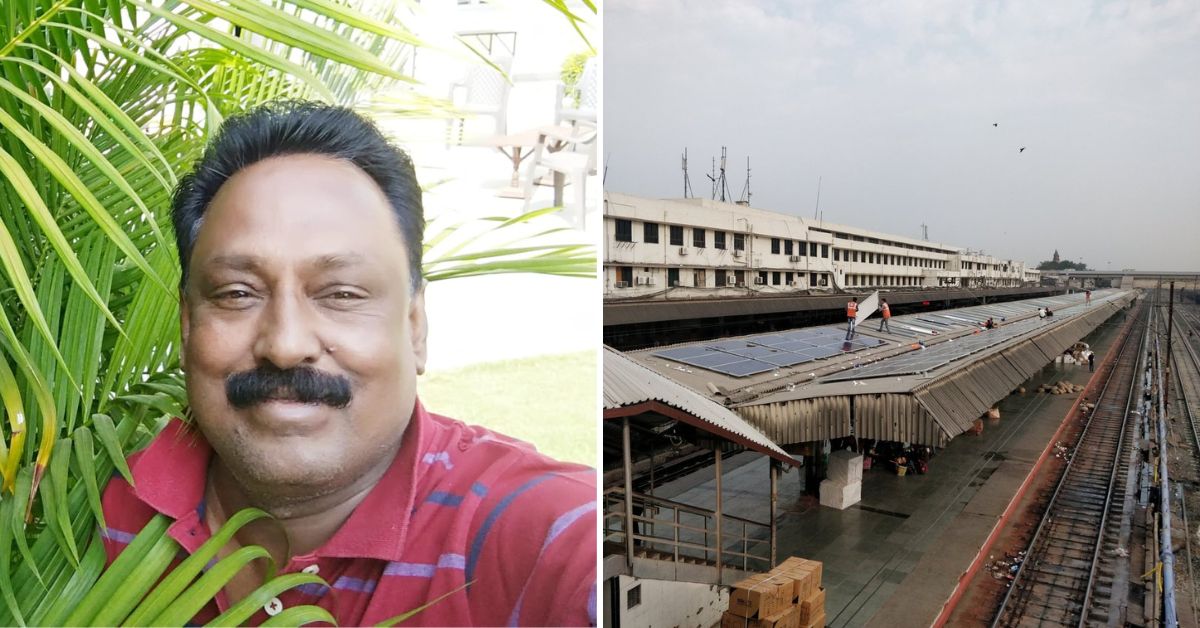
In 2015, the Indian Railways announced its plans to improve cleanliness on-board and on stations, for which it constituted the ‘Environment and Housekeeping Management Directorate’, the wing to incorporate these changes.
Two years later, Fedrick Pariath, then deputy chief mechanical engineer (freight) of the Western Railways, Mumbai, was given the additional charge as deputy chief environment and housekeeping manager.
The 60-year-old recalls that at the time, he had only handled core mechanical engineering roles over his two-decade career. Not one to shy away from this new responsibility, he took this new task as an opportunity to initiate change.
“I decided to work my way around it. There was a lot for me to do, given that this was the first environment-related initiative by the railways,” he tells The Better India.
In 2019, he moved to the Ahmedabad division of Western Railways. In the years since, under his leadership the division has seen monumental progress in many departments.
Several stations — especially the eight NGT-nominated stations of Ahmedabad, Gandhidham, Bhuj, Maninagar, Viramgam, Palanpur, Mahesana, and Samakhiali in the Ahmedabad division — today have an efficient waste management system, water recycling system, solar panels and so on.
A challenging responsibility
Fedrick says that when he started working with the environment and housekeeping management in the Mumbai headquarters in 2017, his work was mostly at the planning level.
“I started by roping in blue chip companies by convincing them to start CSR activities in railways. Most of the companies have huge funds for CSR activities, but they often don’t know how to put them to use,” he explains.
He continues, “I pitched them the idea to install plastic bottle-crushing machines that could aid easy plastic management at stations. Thus, over 20 such machines were installed across several stations of the Western Railways.”
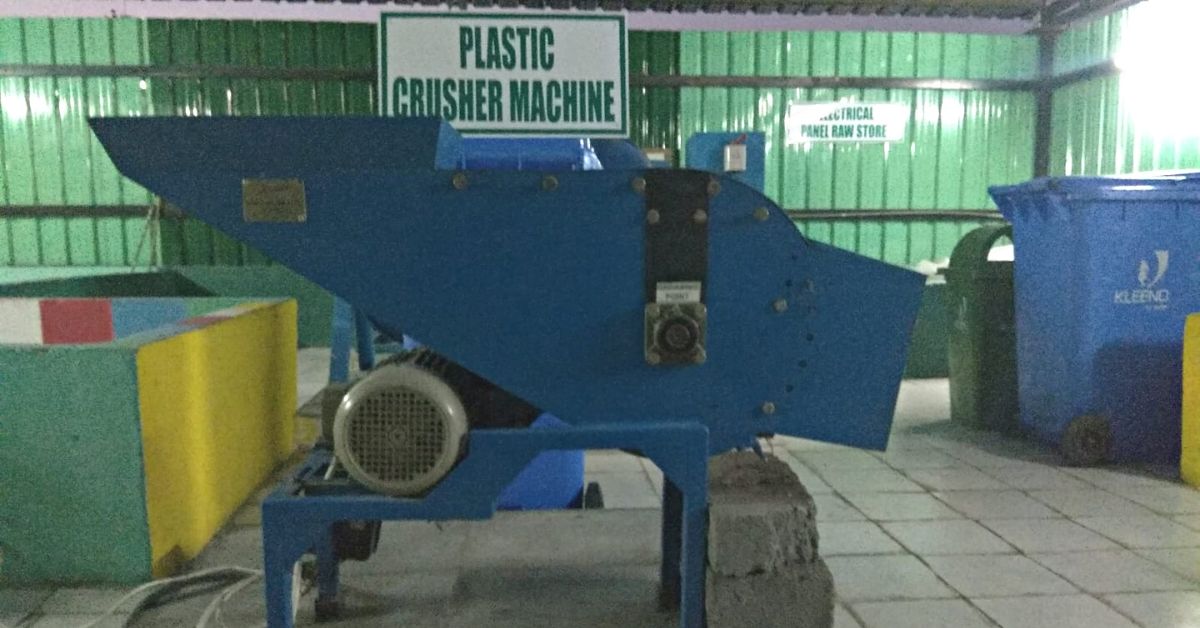
Two years later, he moved to the Ahmedabad division as a senior divisional environment and housekeeping manager. “I took the opportunity and moved to the Ahmedabad division and continued my work from there,” Fedrick says.
“The Ahmedabad division is among the top performing divisions in the Indian Railways in terms of loading, passenger transportation, etc. But it was lagging behind when it came to sustainable environmental management. I decided to implement plans for waste management, pollution control to bring it to a level where it shines in all aspects,” he says.
Combating plastic pollution
After the bottle-crushing machines, Fedrick’s next focus was to deal with plastic waste. For this he collaborated with EcoHike, a Trichy-based organisation that makes apparels out of PET bottles.
“They recycled the pet bottles to make t-shirts, bed-sheets, pillow covers, napkins, headrests and so on. Though the products manufactured were not enough to be supplied across the division, my only intention was to show that there are several ways in which we can tackle the plastic menace,” says Fedrick, who also roped in Bisleri, which agreed to provide a sitting bench made of recycled plastics for every 50 kg of multi-layered plastic (MLP) provided by the railways.
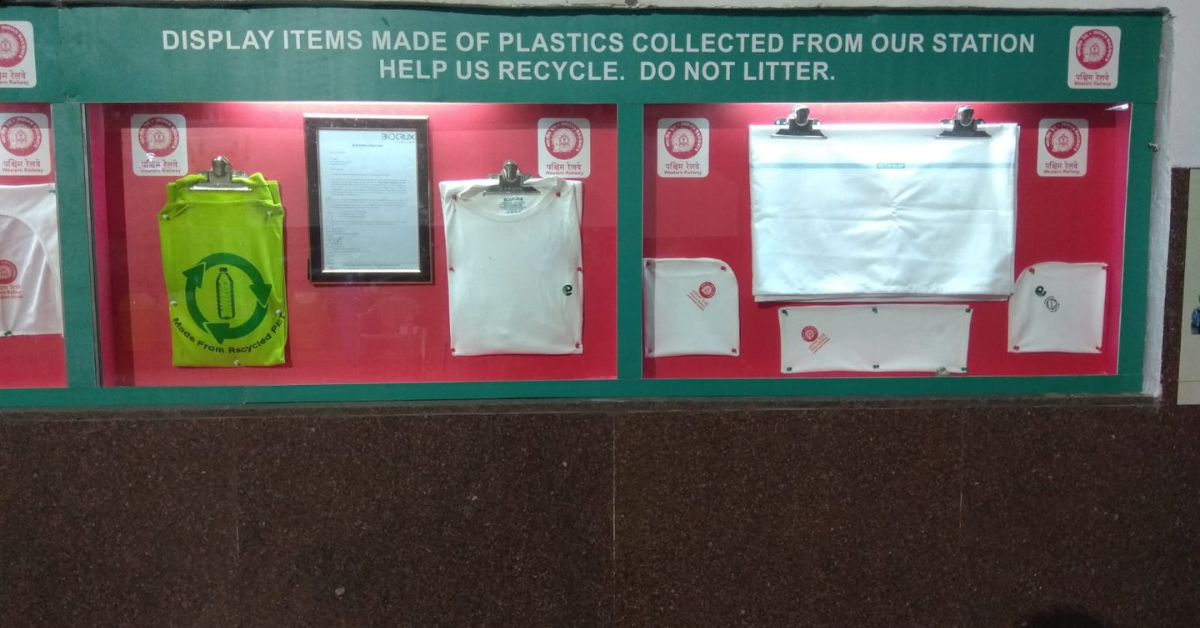
Presently, the products made from recycled PET bottles and the benches made by Bisleri are on display at the Ahmedabad and Gandhidham stations in Gujarat. “I wanted people to see these products and wonder about the possibility of recycling them. I believe that it will influence them in a good way to be more responsible for their actions,” he says.
An efficient waste management system
Fedrick also focussed on waste segregation and installed separate colour bins for wet, dry and plastic waste in the major stations.
“Additionally, we installed ApNova waste bins. These are high-quality, heavy bins that are particularly resistant to weathering and theft, making them perfect for public places like railway stations. They were also installed through CSR activities,” he explains.
In order to manage wet waste at the stations, he took the initiative to put up two compost machines — one of 500 kg capacity and the other of 250 kg — at Ahmedabad station. “We have been able to generate around 6 to 7 tonnes of compost out of it. We also received a NABL certificate qualifying the compost to be of really good quality and suitable for online sale. But we decided to use it for in-house purposes like gardening.”
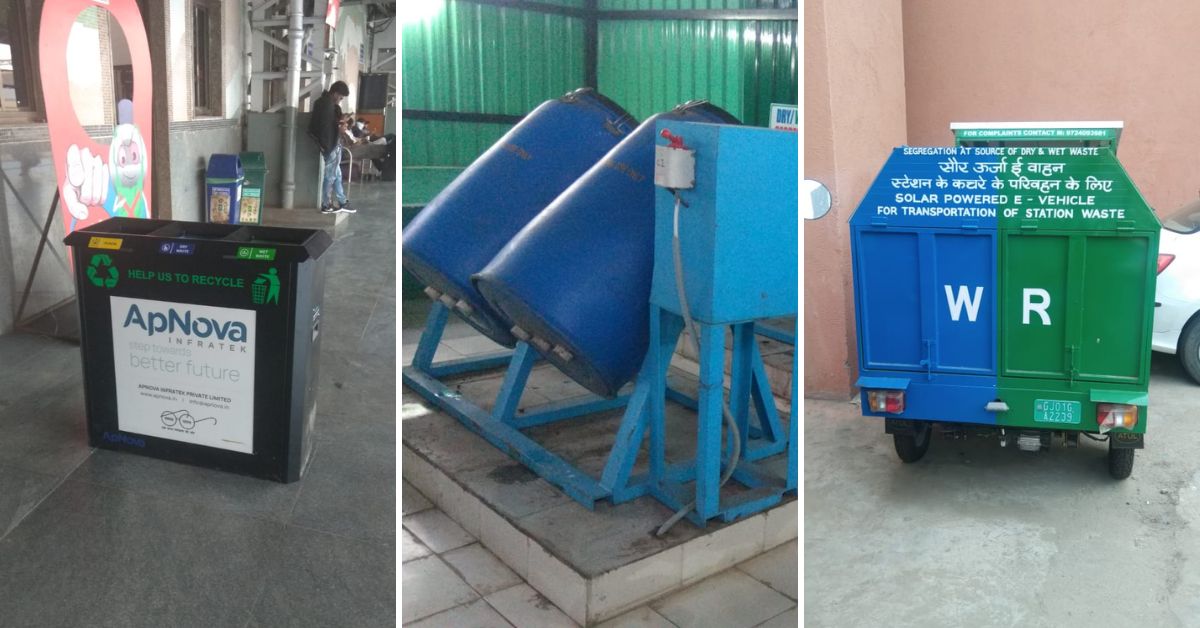
Two solid waste management plants were also set up in major stations like Ahmedabad and Gandhidham, based on the zero-waste concept. “All the garbage we collect is transported to the solid waste plants. For this, we used e-vehicles that completely run on solar power,” he elaborates.
He adds, “We get a lot of silver foils in the garbage that we segregate, clean, and dry. With the help of a company named Eastern Cargo in Dahej, we turned the silver foils, tetra packs, and plastics into polyol sheaths. These sheaths are waterproof and can be used for construction purposes, and are natural heat absorbers that reduce the temperature by 4 degrees Celsius,” explains Fedrick, adding that glasses were crushed and turned into candle stands.
Powering through solar energy
Because a lot of water is required to wash the coaches and platforms, there is massive wastage, Fedrick says.
“We recycled water used for washing in a phytoremediation model sewage treatment plant (STP) installed at different locations across the Ahmedabad division. This generates around 860 Kld (kilo litres per day) recycled water, which is mainly used for gardening, coach washing,” explains Fedrick.
Moreover, the officer also set up a Miyawaki forest on the premises of Ahmedabad Railway Station.
“In 2020 October, we planted around 2,400 trees in 42 different varieties on an 800 sq-m area. Currently, the average height of trees is 15-20 ft,” he says, adding that they have been conducting plantation drives as well.
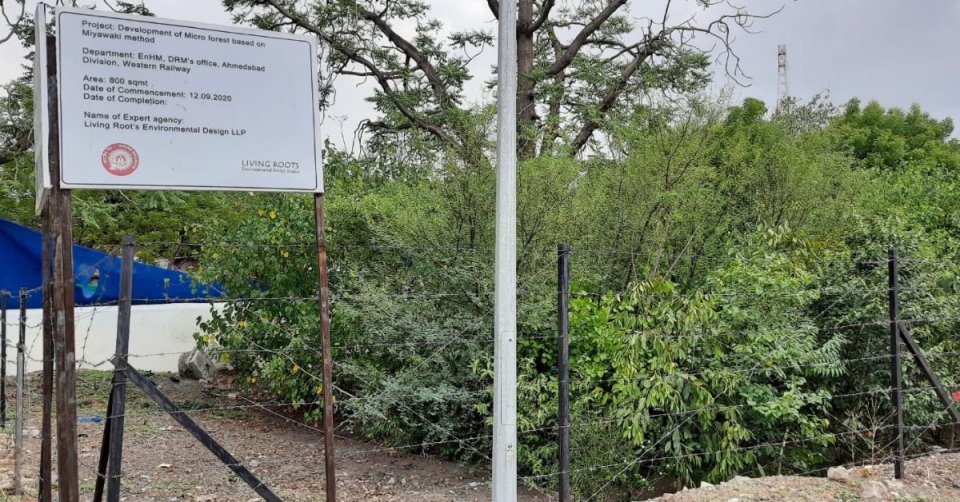
Fedrick also had solar power panels installed with a capacity of 313.8 kWp. “We generated around 4,20,274 kW units at Ahmedabad station, which comes to around 21 per cent of the total electricity consumption of the station,” he says, adding that in stations like Ahmedabad, Sabarmati, and Vatva, there are systems in place for solar harvesting as well.
Measuring the impact
Under Fedrick’s initiative, the Ahmedabad station has now started monitoring Air Quality Index and noise pollution levels on a real-time basis with displays on the platforms.
“To my knowledge, it is the only railway station in which there is an air quality monitoring system. Besides, Ahmedabad station has been awarded a ‘platinum green’ rating by the Indian Green Building Council. It has also been granted the ISO-14001 certification for the Environmental Management System (EMS),” he adds.
Parimal Shinde, former ADRM Ahmedabad Division and current CWM at Mumbai Central Railways, who worked with Fedrick for three years, says, “He has always been an energetic person and highly self-motivated. It was his initiatives that brought in a lot of positive changes in regard to environmental management in the division. His initiatives have now set a path for the rest of the railway divisions across India to learn and follow.”
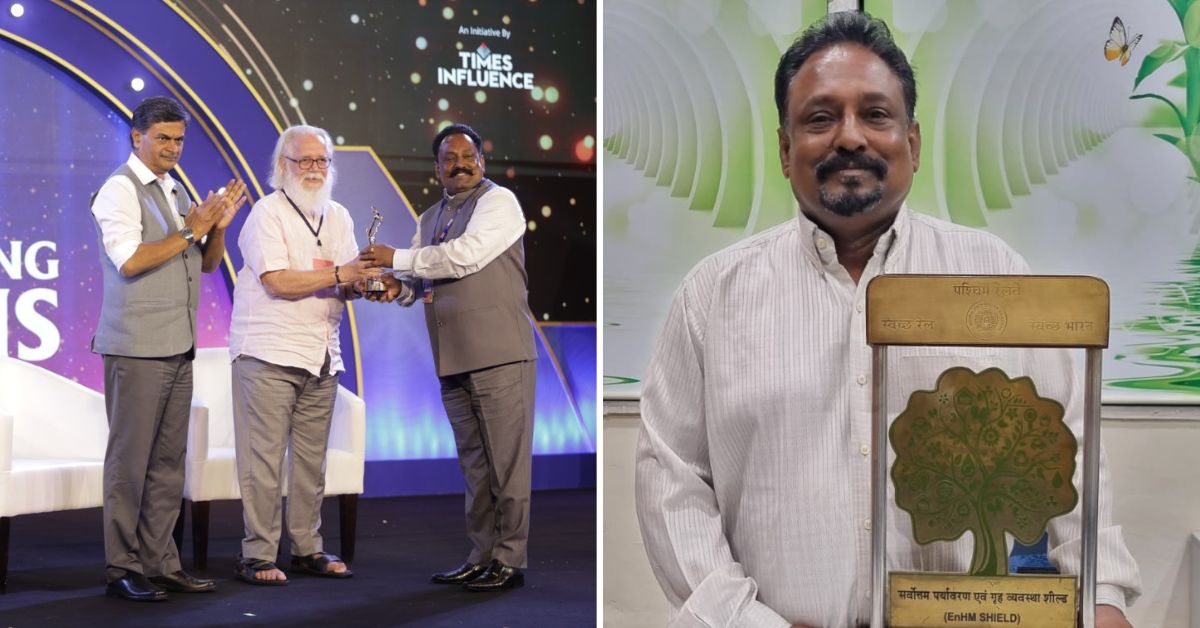
According to Fedrick, “Almost all divisions across the country are now following the solid-waste management system that we had set up. The documents I had created for the scope of work have been passed on to every division.”
He says, “I feel that people have become more aware, especially in regard to littering or plastic pollution. Ever since we installed the dustbins, and displayed products made out of recycled plastic, we have observed a change in behaviour among the passengers. The railway staff are also more conscious about water wastage.”
Recently retired from his service, Fedrick now works as a consultant for environment-related projects.
You can contact Fedrick Pariath at +919909844050 or [email protected]
Edited by Divya Sethu
This story made me
-
97
-
121
-
89
-
167
Tell Us More
If you found our story insightful, informative, or even just enjoyable, we invite you to consider making a voluntary payment to support the work we do at The Better India. Your contribution helps us continue producing quality content that educates, inspires, and drives positive change.
Choose one of the payment options below for your contribution-
By paying for the stories you value, you directly contribute to sustaining our efforts focused on making a difference in the world. Together, let's ensure that impactful stories continue to be told and shared, enriching lives and communities alike.
Thank you for your support. Here are some frequently asked questions you might find helpful to know why you are contributing?



















